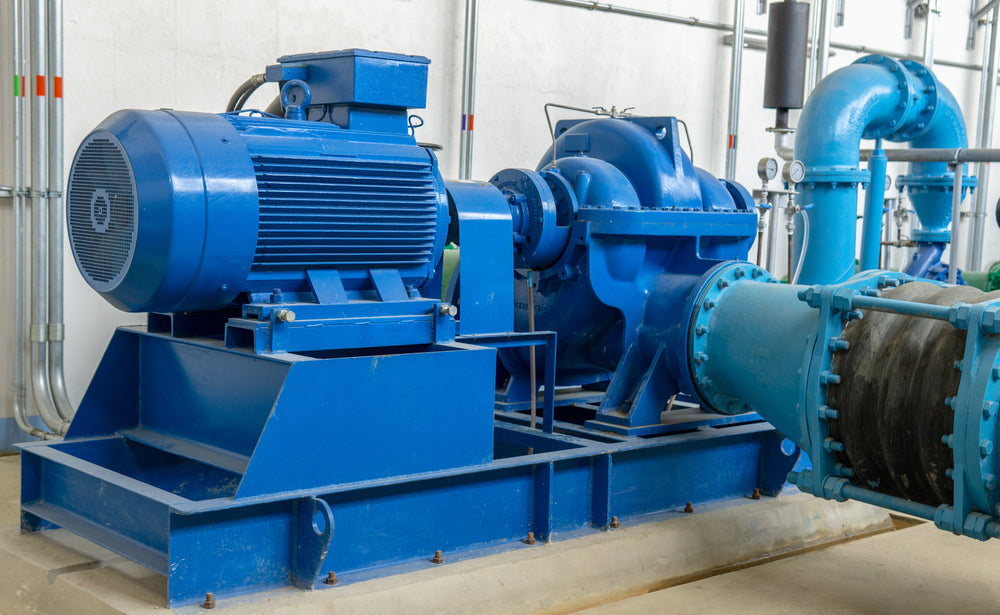
New Vs Re-Conditioned Electric Motors: What's the Difference?
Electric motors are the backbone of countless sectors, powering everything from HVAC systems to industrial machinery.
For professionals in the industrial, plumbing, air conditioning, refrigeration, and heating sectors, choosing to buy the right electric motor can significantly impact operational efficiency and cost-effectiveness.
Unfortunately, a common dilemma is whether to opt for a new or reconditioned electric motor.
As a leading electric parts supplier in Australia, our experts at BCB Sales & Service will explore the differences between the two options, helping you make an informed decision tailored to your needs.
The Large and Small of Electric Motors & Their Spare Parts
Electric motors convert electrical energy into mechanical energy, driving an array of machinery and equipment.
There are two primary types of electric motors: AC (alternating current) and DC (direct current). AC motors are widely used in industrial applications due to their reliability and efficiency, while DC motors are preferred for their speed control and torque capabilities.
Electric motors are essential for a wide range of applications, including:
- Industrial machinery
- HVAC systems
- Refrigeration units
- Plumbing equipment
- And more!
New Electric Motors
New electric motors offer your systems brand-new units manufactured using the latest technology. Naturally, these motors come with several advantages:
- Reliability and Performance: New motors are typically more reliable and perform better than their re-conditioned counterparts. They are built to meet current industry standards and specifications.
- Latest Technology and Efficiency: New motors incorporate the latest advancements in motor technology, resulting in higher efficiency and energy savings.
- Warranty and Support: New motors come with manufacturer warranties, offering peace of mind and support in case of any issues.
When to Buy a New Electric Motor
Investing in a new electric motor is ideal when:
- You require the highest reliability and performance.
- You need a motor with the latest technology and energy efficiency.
- You prefer the security of a manufacturer's warranty.
For example, a new motor might be the best choice for a critical piece of equipment that requires maximum uptime and minimal risk of failure.
Re-Conditioned Electric Motors
Similar to when you purchase electric motor spare parts, re-conditioned electric motors are used motors that have been refurbished to meet or exceed original performance standards. They offer several benefits:
- Cost-Effectiveness: Re-conditioned motors are generally more affordable than new ones, making them a cost-effective option for budget-conscious buyers.
- Sustainability and Environmental Benefits: Choosing a re-conditioned motor supports recycling and reduces environmental impact.
- Availability of Hard-to-Find Models: Re-conditioned motors can be a great option if you need a specific model that is no longer in production.
When to Consider Buying a Re-Conditioned Electric Motor
Opt for a re-conditioned motor when:
- Budget constraints make purchasing a new motor impractical.
- You need a motor that is no longer available as new.
- Sustainability is a priority for your business.
Re-conditioned motors are often suitable for less critical applications where cost savings are more important than having the latest technology.
Key Differences Between New and Re-Conditioned Electric Motors
Cost
- New motors are more expensive upfront but may offer long-term savings through efficiency.
- Re-conditioned motors are less costly initially but may require more frequent maintenance.
Performance and Lifespan
- New motors generally offer better performance and a longer lifespan.
- Re-conditioned motors can perform well but may have a shorter operational life.
Reliability and Risk Factors
- New motors come with lower risk due to warranties and support.
- Re-conditioned motors may carry higher risk due to their previous usage history.
Maintenance Requirements
- New motors require less frequent maintenance.
- Re-conditioned motors may need more regular upkeep.
For instance, while a new motor might cost more initially, its efficiency could lead to lower operational costs over time.
Factors to Consider When Choosing Between New and Re-Conditioned Motors
When deciding between new and re-conditioned motors, consider the following:
- Specific Industry Needs and Applications: Assess your industry's specific requirements and how each option meets those needs. For instance, a high-performance motor might be essential for a critical HVAC system in a large building.
- Budget Constraints: Determine your budget and weigh the initial costs against potential long-term savings. Reconditioned motors can offer substantial upfront savings, which might be crucial for smaller businesses.
- Availability of Parts and Service: Ensure that parts and services are readily available for your chosen motor. For example, selecting a motor that has readily available spare parts can minimise downtime during repairs.
Shop with Australia’s Leading Electrical Parts Supplier
Choosing between new and re-conditioned electric motors depends on your specific needs, budget, and priorities. New motors offer reliability, performance, and the latest technology, while re-conditioned motors provide cost-effectiveness and sustainability.
Shop online to discover our extensive selection of electric motors and spare parts, or to learn more, contact us at BCB Sales & Service today.
